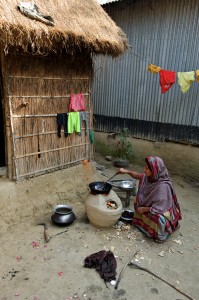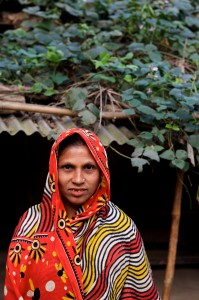
In Microfinance we often focus on how our clients respond to financial stimuli as it is easier to measure and can be captured through a carefully crafted mechanism that obtains monetary information about our beneficiaries. However, there are other external stimuli that have a psychological impact on our clients that we fail to explain because the process of collecting such data can be arduous and ambiguous.
I’ve had the opportunity to observe an interesting change in some of our clients’ behaviour when I was in the field during a three month attachment. During that time I was closely looking at MF’s Dabi Programme (household loans) that involves providing individual micro-loans to women borrowers. I witnessed a fascinating account of human behaviour in response to social expectations and also how certain behaviours change when those expectations are not present.
The women Dabi borrowers in rural village areas that take out a loan play a fairly submissive role in their family. These borrowers would take out a loan to aid their husbands in their businesses but would have very little say in financial matters let alone important household issues. Even though these women are taking out the loan in their name and building a credit history based on their interactions with BRAC’s field officers, they tend to receive very little recognition for that responsibility. Their ability to access finance for the family is simply taken for granted and considered a duty that they must fulfil. The role that these ladies play in their household has been passed on by their parents or in-laws and the close knit community they live in.

I had the chance to compare this scenario with women borrowers in city centres. I observed new and seasoned urbanites in their habitats and saw a drastic difference in how the role was defined for these women in their domestic units. When these women moved to the city with their husbands in search of better job opportunities, many had to leave their families and social ties behind. Once the social expectation of fulfilling their “duty” as the more subservient member of the family was removed, these women borrowers seemed to develop a more assertive personality. They were still taking out loans to help serve their husband but they acted more like an equal partner providing capital for their husband’s business. These women not only helped to manage the household finances but were more opinionated and had more influence on family matters.
This rural-urban distinction between the social expectations of women must be taken into account by BRAC Microfinance as it works to achieve equal empowerment for all women in Bangladesh.
Emita Latif is a management professional with the microfinance research and development unit and the social innovation lab.